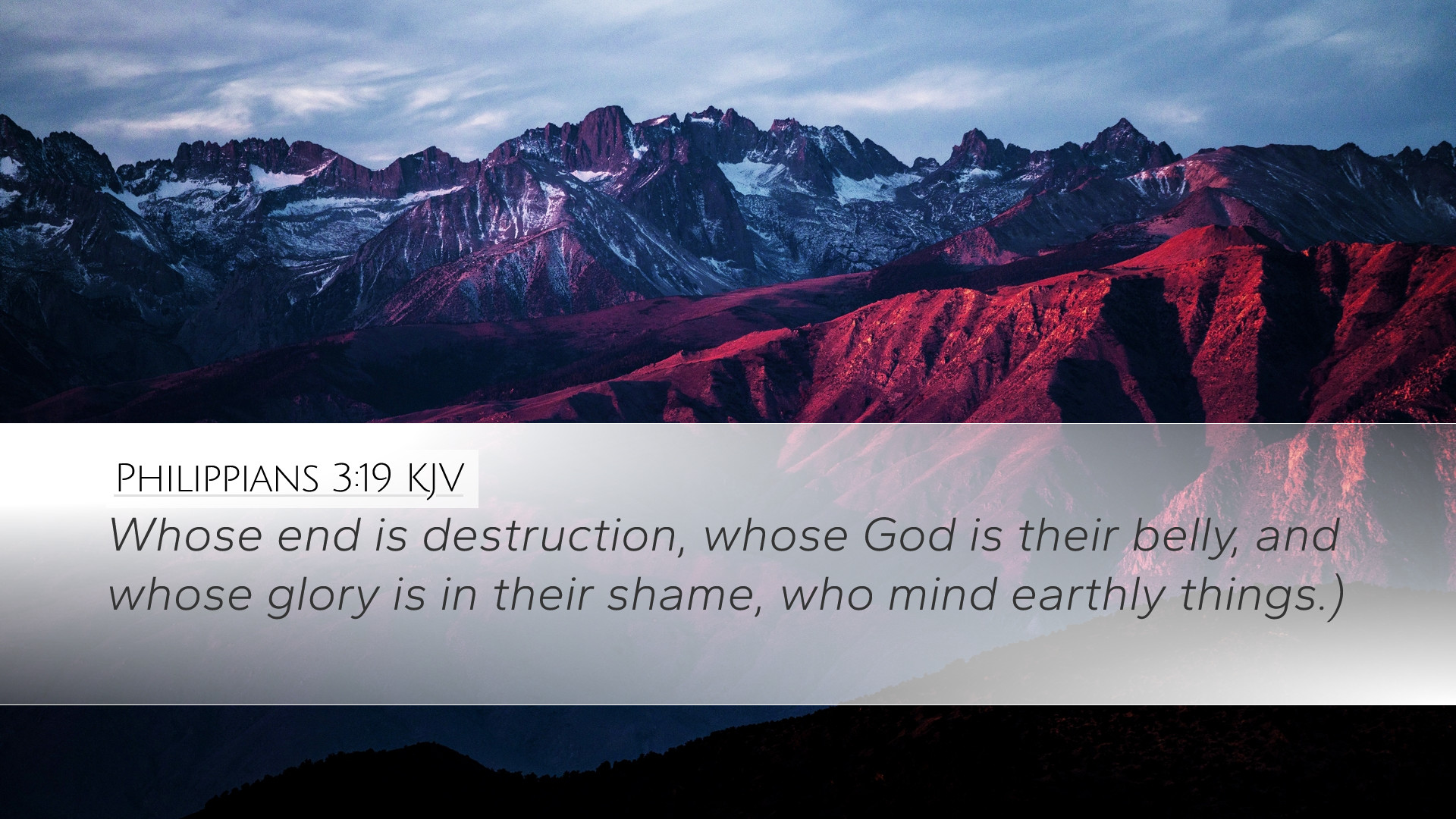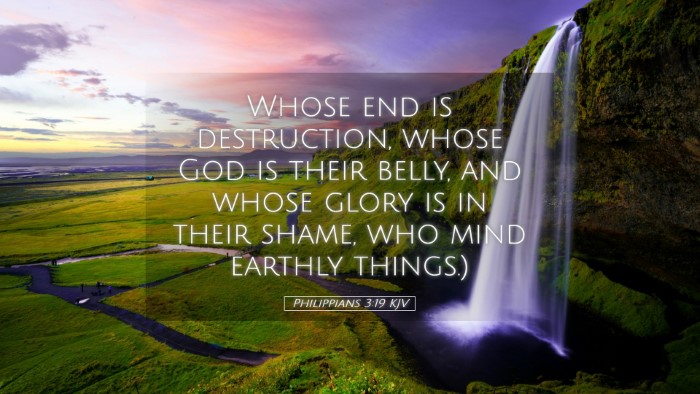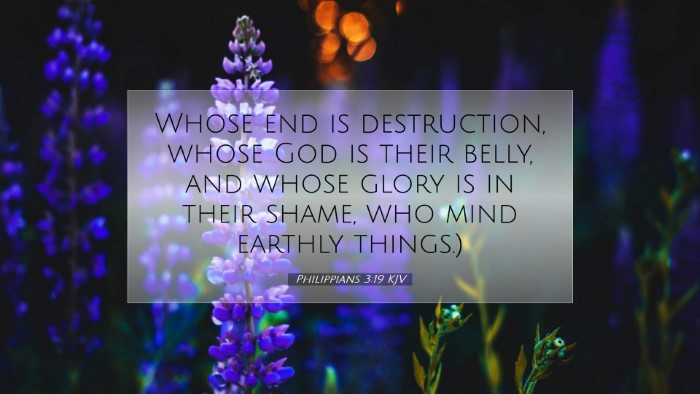Commentary on Philippians 3:19
Philippians 3:19 states:
"Whose end is destruction, whose God is their belly, and whose glory is in their shame, who mind earthly things."
Introduction
This verse forms part of Paul’s exhortation to the Philippians to pursue a path differing from that of those who are enemies of the cross of Christ. In this commentary, we will engage insights from several public domain commentaries to provide a comprehensive understanding of the text.
Exegesis of Philippians 3:19
Contextual Background
In Philippians, the Apostle Paul contrasts two lifestyles: one that seeks earthly desires and another that strives for heavenly aspirations. Firstly, it’s essential to note that Paul addresses a community facing threats from false teachers who distort the gospel. His words create a sharp distinction between those who genuinely follow Christ and those who lead lives contrary to His message.
Analysis of Key Phrases
- "Whose end is destruction": This phrase carries grave implications regarding the fate of the individuals Paul refers to. Matthew Henry notes that the end of such lives, guided by selfish desires, is spiritual ruin and eternal separation from God.
- "Whose God is their belly": Here, Paul identifies idolatry not merely in traditional forms but as the worship of physical appetites. Albert Barnes emphasizes that prioritizing bodily desires over spiritual matters leads to moral decay.
- "Whose glory is in their shame": Paul points toward a paradox in the values of the ungodly; things that should engender shame are actually sources of pride for them. Adam Clarke discusses how this inversion of values indicates a profound moral depravity.
- "Who mind earthly things": The term "mind" denotes a preoccupation or concentration on worldly rather than heavenly matters. These individuals embody a mindset fixated on temporal gains rather than eternal truths.
Theological Insights
Contrast Between Believers and Unbelievers
Paul's language emphasizes a spiritual dichotomy. While believers are to focus on heavenly things, the enemies of the cross fall into a trap of earthly distractions. Matthew Henry suggests that this distinction is critical for Christian living, encouraging believers to aspire to a higher calling.
Idolatry of Self
By stating that "their God is their belly," Paul addresses the broader theme of idolatry. Commentators consistently note that idolatry in the New Testament often manifests as an excessive focus on personal gratification and worldly pursuits. Barnes mentions the danger of allowing physical cravings to dictate one’s spiritual trajectory, warning against consumerism cloaked in piety.
Future Judgment
The implications of “whose end is destruction” speak profoundly of future judgment. There exists a warning about the consequences of living counter to the Christian ethic. Adam Clarke assures readers that the destinies of those who oppose the gospel are sealed, living lives devoid of true meaning.
Moral Responsibility of the Believer
The commentary highlights that while Paul contrasts the two groups, he also urges believers to take moral and spiritual responsibility for their lives. They are called to rise above societal norms that contradict their faith, remaining vigilant against the seductive nature of worldly pleasures.
Practical Applications
- Evaluate Priorities: Believers are prompted to assess their lives and ensure that their pursuits align with God's will. Reflect on areas where 'the belly' might be prioritized over spiritual growth.
- Cultivate Spiritual Discernment: The text encourages vigilance in distinguishing between true and false teachings that might lead believers astray.
- Promote Accountability: In community, believers should provide mutual encouragement to focus on things above (cf. Colossians 3:2) and hold one another accountable against the unholy motivations described by Paul.
Conclusion
Philippians 3:19 serves as a stark warning against complacency and a call to intentionality in the Christian walk. By heeding the insights from respected commentators, we recognize that true glory is found not in earthly pursuits but in a life dedicated to Christ and His cross.


